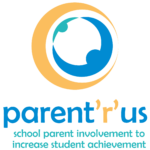Training mentors using a mentoring simulation pathway

WORKSHOP LED BY JOANA PORTUGAL
Joana Portugal has a degree in Gerontology and a Master in Social and Solidarity Economy, in which she has presented a thesis on the relationship between mentoring and social inclusion. She has worked as a trainer for low-skilled women in the field of elderly care since 2007 and has provided capacity-building programmes to care providers and non-profit organisations in the field of quality management.
From 2014 onwards, Joana works at Aproximar, a social cooperative working in the field of social innovation since 2006 in 4 sectors: Social Economy, Employability, and Entrepreneurship; Education, Training and Social Capital; Criminal Justice System; and Active Ageing and Dependent Care. Aproximar delivers mentoring programmes since 2009 and Joana is the Coordinator of Aproximar’s mentoring programme M4All – mentoring for all. In this role, Joana has managed several innovation projects, targeting long-term unemployed, 1st job seekers, disadvantaged parents, or teachers, she supports and provides training to mentors.
Get to know the Aproximar’s innovation programe Parent’r’us.


ABSTRACT
What is your major starting question or hypothesis?
The use of a simulation learning pathway for a mentoring process, alongside with creative thinking tools and materials promote a more interactive induction-training for new mentors, providing insightful experiences and hands-on exercises. Thus, it provides more prepared non-peer mentors for dealing with people from vulnerable backgrounds.
How do you plan the session? Which method will you use?
We will base our session in showcasing our practice and approach developed within a mobility project across Europe to train 60 non-peer mentors to work with different target groups in 5 different EU countries. The session will include oral presentation about the framework of the mentoring training and practical exercises in which participants will “taste” the simulation pathway and the tools used. This simulation goes over the stages of a mentoring relationship: getting to know each other-build confidence-diagnosis-set goals- empowerment-evaluation-closure and participants can mobilize their skills needed on these different stages. We will conclude the session with a group exercise for debriefing the main outcomes taken from the session.
What is the goal of the session?
This session offers participants the opportunity to value training when using non-peer mentors as a mean to prepare them to work with people from vulnerable groups. It will provide a learning process and tools to make the training interactive and more meaningful.
